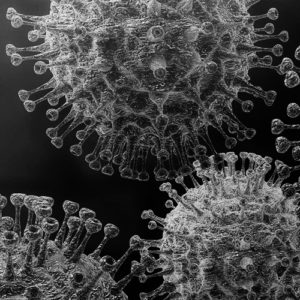Frequently Asked Questions
We’ve already received a number of questions from Community Association Boards regarding the legal requirements surrounding COVID-19 coronavirus. Here are some of the Frequently Asked Questions.
If a resident has been diagnosed with the coronavirus, or has been advised by public health officials to self-quarantine, can the Association ban the resident from the building?
Not likely. If a resident has been diagnosed with COVID-19 coronavirus or has been told to self-quarantine, they are entitled to reside in their unit unless and until local and state health officials or other governmental authorities deem otherwise.
Will we be notified of COVID-19 infection by our township or state?
This is also not likely due to privacy laws. Your municipality is not likely to notify the community association that someone in your community has coronavirus or has been otherwise instructed by public health officials to self-quarantine. The only way you’ll know this is if the resident or someone residing with them decides to notify you. The municipality also might not share the specific self-quarantine restrictions it is imposing on the resident.
Should we close our exercise room, viewing room, conference room, spa, pool, and other amenities?
It would be reasonable and legally justifiable for you to close all such amenities at present if the Board so chooses. If you decide to keep any amenities open, you should immediately install signs that advise users that they use the facilities at their own risk, and you might consider posting information regarding proper procedures for cleaning equipment before and after use, and of CDC recommendations for protecting their health (e.g., washing their hands with soap and hot water for at least 20 seconds). You should consider canceling all social events from clubhouse facilities.
Can we notify unit owners and other residents if a resident of our community has been diagnosed with the coronavirus?
It may be reasonable for a community association to notify unit owners that a resident of the community has been diagnosed with COVID-19 if:
- The resident has notified the Board or property manager that the resident has been diagnosed with COVID-19; or
- Another current resident of the same unit has notified the Board or property manager that the resident has been diagnosed with the COVID-19; or
- A public health official has officially notified the Board or property manager that the resident has been diagnosed with the COVID-19.
You should not:
- Disclose the name, unit number or any other identifiable information.
- Rely on rumor, innuendo, or unofficial sources that claim a person has been diagnosed with COVID-19.
Can we notify unit owners and other residents if a resident of our community is self-quarantining?
It may be reasonable for a community association to notify its unit owners and other residents that a resident of the community is self-quarantining with COVID-19 if:
- The resident has notified the Board or property manager that the resident has been diagnosed with COVID-19; or
- Another current resident of the same unit has notified the Board or property manager that the resident has been diagnosed with the COVID-19; or
- A public health official has officially notified the Board or property manager that the resident has been diagnosed with the COVID-19.
You should not:
- Disclose the name, unit number or any other identifiable information.
- Rely on rumor, innuendo, or unofficial sources that claim a person has been diagnosed with COVID-19.
Can the Board take binding votes by email and phone, rather than at an open meeting?
Under New Jersey law, all binding votes by a Community Association Board, except those dealing with certain specified exception areas, normally must be taken at an open meeting that unit owners are allowed to attend, not in closed session, by email, by phone, and ratified at a later open meeting.
Given present circumstances, however, we believe it is legally justifiable for a Community Association Board to hold its meetings by video conference, telephone conference call and/or to make decisions by email and then ratify them at the board’s next open, in-person meeting.
The Board should promptly post in the management office and/or electronically notify unit owners of any such decisions. (If you have the capability to meet by electronic means that permits unit owners to view or hear your meeting, that is preferable to the Board voting by email, phone, or in closed session. Unless your by-laws provide otherwise, unit owners have no right to speak at a Board meeting.)
Radom & Wetter normally strongly advises against our clients taking binding votes in closed session or by email or phone and then ratifying them at a future open meeting, because doing so fails to comply with New Jersey law.
It is our opinion, however, that in a true emergency in which the need for an immediate decision precludes the Board from holding an open meeting before action in response to the emergency is necessary, a Board may be considered justified in voting by means other than open session. The current situation constitutes an emergency, namely, avoiding unnecessary gatherings of large groups of people to try to avoid the possible spread of COVID-19.
We would be glad to discuss with you any of these questions or any other questions you may have regarding this crisis. Learn more about Community Associations and COVID-19 coronavirus.
This information should not be considered legal advice and is not intended as a substitute for consultation with an attorney. No aspect of this advertisement has been approved by the Supreme Court of New Jersey. Radom & Wetter can be reached by calling (908) 707-1500 or by visiting 245 Route 22 West, Bridgewater, NJ 08807 or https://radomandwetter.com.
